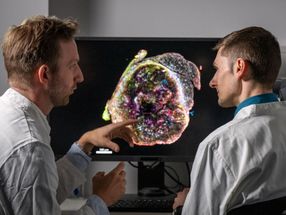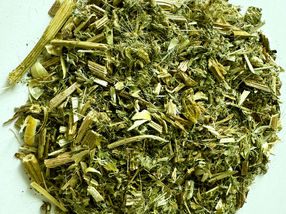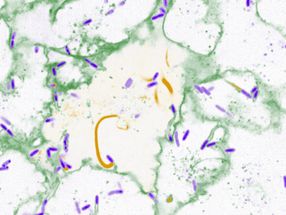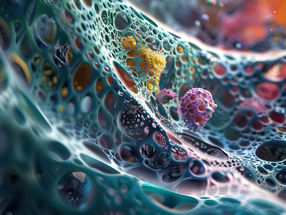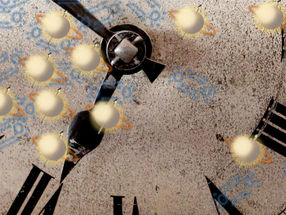Protective covers for implants
ETH scientists have developed a membrane that protects medical implants from unwanted encapsulation by connective tissue. The researchers founded a spin-off company just over a year ago and have now been awarded funding by the start-up competition Venture Kick.
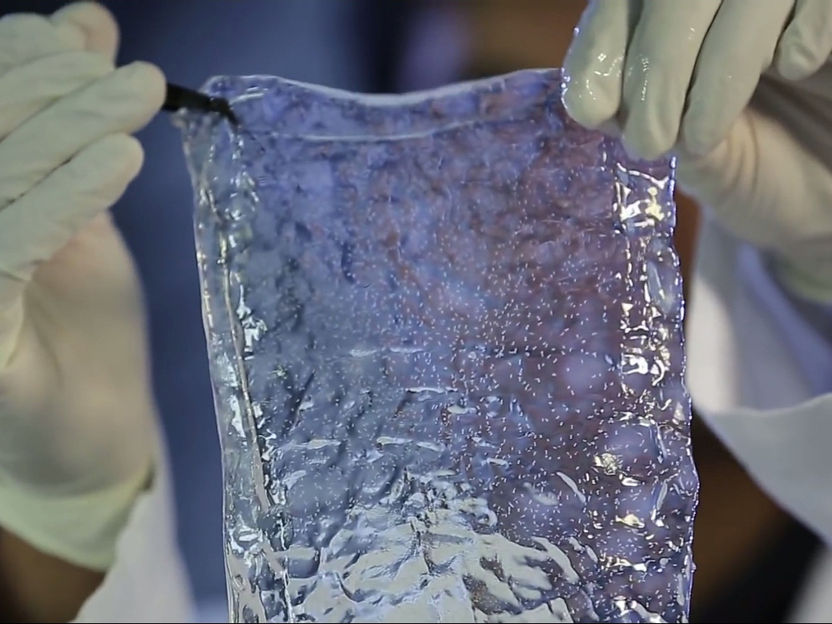
A micro-structured cellulose membrane to surround a heart pump.
ETH Zürich
It is one of the greatest hurdles in surgical medicine: the body identifies an implant such as a pacemaker as foreign tissue and, in a defensive reaction, encapsulates it with connective tissue known as fibrotic tissue. Under such circumstances, such rapidly growing tissue can prevent the implant from functioning. Physicians sometimes find themselves forced after months or years to conduct revision surgery, in which they have to either remove the connective tissue or replace the implant altogether.
In the past few years, researchers at ETH Zurich and the ETH spin-off Hylomorph have found a way to prevent the build-up of this unwanted connective tissue by developing a biocompatible cellulose shell with a three-dimensional microstructure. Research results are giving them hope that the coated implants are less affected by fibrotic tissue build-up. The spin-off Hylomorph has now received recognition in the start-up competition Venture Kick. It is one of two start-ups to make it to this month's Venture Kick finale and will be supported with CHF 130,000 in seed capital.
Membrane with micro-indentations
The researchers produced the cellulose in a cell culture from specific bacteria using a micro-sized 'bed of nails' as a negative mould. In this manner, the cellulose membranes were created with corresponding minute indentations. "This 3D structure prevents fibrotic tissue from growing continuously on the membrane," explains Simone Bottan, co-founder and CEO of Hylomorph.
The scientists are now working intensely to further develop the membrane for use as a cover for an artificial heart pump. Hylomorph is a partner in the HeartOne project at the Wyss Translational Center Zurich, a development centre of ETH Zurich and University of Zurich. The project aims to improve artificial heart pumps.
Broad application
Potential applications of cellulose are not limited to heart pumps and pacemakers. "The technology could be used in the future for any implant in which connective tissue build-up is a problem; for example, breast implants or surgical meshes, which are used in hernia operations," says Bottan.
In collaboration with University Hospital Zurich and the German Heart Institute Berlin, the scientists are currently using pigs in a laboratory setting to test their covers for safety, usability and their ability to reduce fibrotic tissue build-up in a realistic application. If these tests are successful, the scientists plan on conducting the first clinical trials on humans.
Most read news
Organizations
Other news from the department science

Get the life science industry in your inbox
From now on, don't miss a thing: Our newsletter for biotechnology, pharma and life sciences brings you up to date every Tuesday and Thursday. The latest industry news, product highlights and innovations - compact and easy to understand in your inbox. Researched by us so you don't have to.

